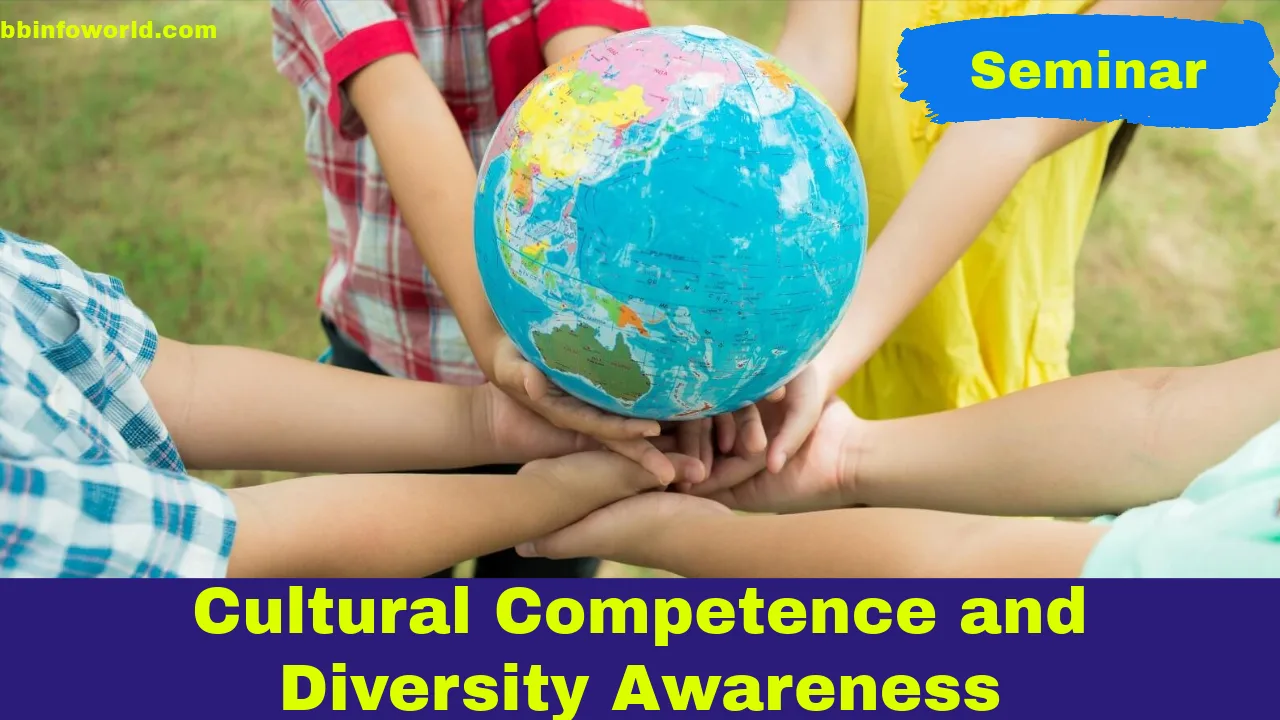
Cultural Competence and Diversity Awareness
Gain insights into cultural competence, diversity, and inclusion, enabling you to work effectively in diverse environments and with people from different backgrounds.
Cultural Competence and Diversity Awareness:
Cultural competence and diversity awareness are essential skills in today’s interconnected and multicultural world. They refer to the ability to understand, respect, and effectively interact with individuals from various cultural, ethnic, religious, and social backgrounds. This skill set is crucial in both personal interactions and professional settings, as it promotes inclusivity, collaboration, and harmonious relationships among diverse groups of people.
Cultural Competence:
Cultural competence involves being aware of and respectful towards the cultural values, norms, beliefs, practices, and traditions of different communities. It goes beyond mere tolerance and strives to create an environment where individuals feel understood and valued for who they are. Cultural competence includes:
- Self-Awareness: Understanding your own cultural identity, biases, and assumptions to better comprehend how they may influence interactions with others.
- Cultural Awareness: Recognizing and appreciating the differences and similarities among cultures, and being open to learning about various cultural perspectives.
- Communication Skills: Developing effective communication skills that consider cultural nuances, including nonverbal cues, gestures, and language usage.
- Empathy: Putting yourself in another person’s shoes to understand their emotions, experiences, and viewpoints without judgment.
- Conflict Resolution: Navigating conflicts that may arise due to cultural misunderstandings with sensitivity and openness to dialogue.
Diversity Awareness:
Diversity awareness acknowledges the presence of a diverse range of identities, including but not limited to race, ethnicity, gender, sexual orientation, religion, age, and abilities. It promotes an understanding that each individual brings a unique perspective and value to a community or organization. Diversity awareness includes:
- Inclusion: Creating an environment where everyone feels welcome, respected, and able to contribute their unique strengths and perspectives.
- Breaking Stereotypes: Challenging stereotypes and biases that can perpetuate discrimination or exclusion.
- Open-Mindedness: Being open to learning from different viewpoints and being receptive to new experiences and ideas.
- Cultural Sensitivity: Being aware of potential cultural pitfalls or misunderstandings and approaching situations with respect and sensitivity.
Importance in Professional Settings:
Cultural competence and diversity awareness are particularly vital in workplaces and professional settings. When individuals can effectively navigate diverse teams and interact with colleagues, clients, and customers from various backgrounds, it leads to:
- Enhanced Communication: Clear and respectful communication across cultures promotes collaboration and reduces misunderstandings.
- Improved Problem Solving: Diverse teams bring varied perspectives, leading to innovative problem-solving and decision-making.
- Inclusive Leadership: Culturally competent leaders create environments where employees feel valued and empowered.
- Global Reach: In a globalized economy, cultural competence is crucial for businesses to expand and succeed internationally.
Conclusion:
Cultural competence and diversity awareness are not just buzzwords; they are essential skills for fostering a more inclusive and harmonious society. By gaining insights into various cultures and identities and learning how to interact respectfully and effectively, individuals can contribute to positive change and create environments where everyone’s voices are heard and valued.



